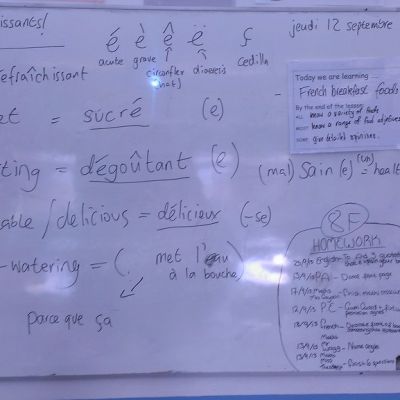Last week, we looked at the Supreme Court of Canada’s recent decision in Conseil scolaire francophone de la Colombie-Britannique v. British Columbia.
That decision confirmed that the Province of British Columbia unjustifiably infringed section 23(1) of the Canadian Charter of Rights and Freedoms by inadequately funding French education. Charter damages of $7.1 million were awarded against the Province.
The case involved French language schools.
But, does Conseil also have implications for French immersion programs?
Implications for Transportation to French Immersion Programs
Section 23(2) of the Charter provides Canadian citizens with the right to have all their children educated in the same language. The purposes of section 23(2) include family unity and continuity of education.
Unlike section 23(1), section 23(2) does not require that the child’s parents speak French.
On March 11, 2020, the central Okanagan school district (SD 23) decided to terminate certain bus routes to its French immersion programs. The reason? Budgetary reasons, and the fact that these students attend what SD23 euphemistically refers to as a “program of choice.”
At that meeting, equine learning and a golf academy were approved.
Interestingly, SD 23 allocates transportation only on the basis of proximity to English schools. French immersion students who live close to an English school, but far away from the French immersion school, are denied bussing to the French immersion school.
In light of the Supreme Court of Canada’s decision in Conseil, school districts across Canada may find themselves closely examining access to French immersion programs. This includes scrutinizing transportation policies and practices.
In some cities across Canada, English programs are readily introduced into newly built schools. French immersion programs are not. This forces families to chose between traveling hours by bus each day to a French immersion school, or abandoning French in favour of a much closer school which provides English only instruction.
The government and schools assert that the Charter does not extend to French immersion schools. This position is out of step with numerous Supreme Court of Canada decisions.
Is it any more acceptable to limit transportation for students being educated in French under section 23(2) than it is to limit it for those being educated in French under section 23(1)? After all, we remain a viable bilingual nation through both section 23(1) and section 23(2).
Interaction with BCTF v. BC decision
In this column, I previously wrote about the Supreme Court of Canada’s 2016 decision in British Columbia Teachers’ Federation v. British Columbia. That decision confirmed that the Province violated teachers’ right to freedom of association under section 2(d) of the Charter when it attempted to curtail teachers’ ability to negotiate class size and composition issues.
In practice, will these two decisions conflict?
On one hand, there is a sense among some that following the BCTF’s 2016 win at the Supreme Court of Canada, the BCTF is now all-powerful.
On the other hand, Conseil clarifies that restricting access to French language programs may well violate the Charter.
Amid claims of budgetary constraints, school districts are implementing lotteries, and wait lists in response to the high demand for French immersion programs.
Will careful budgeting make it possible to fulfill the BCTF’s class size demands, and also satisfy the demand to be educated in French, whether through French language schools or French immersion?
If not, whose rights will prevail? Teachers’ rights, resulting in French language education being denied to at least some students in favour of smaller classes? Or, students’ rights, satisfying the demand for French immersion programs which may result in larger classes across not only French immersion but possibly also English language programs?
It is only a matter of time before someone challenges the restricted access across B.C., and across Canada, to French immersion programs.
This includes restrictions on transportation to French immersion programs. Conseil draws into question whether such restrictions will withstand a Charter challenge.
You may also be interested in:
Understanding BC Teachers’ Federation v. Province of BC – Part 1: 2002-2014
BC Teachers Federation v. Province of BC – Part 2: Appellate Decisions
BC Teachers Federation v. Province of BC – Part 3: Where Are We Now?
This is a slightly modified version of an article that appeared in the Kelowna Capital News and other online publications on or about June 28, 2020. The content of this article is intended to provide very general thoughts and general information, not to provide legal advice. Advice from an experienced legal professional should be sought about your specific circumstances. We may be reached through our website at inspirelaw.ca.
